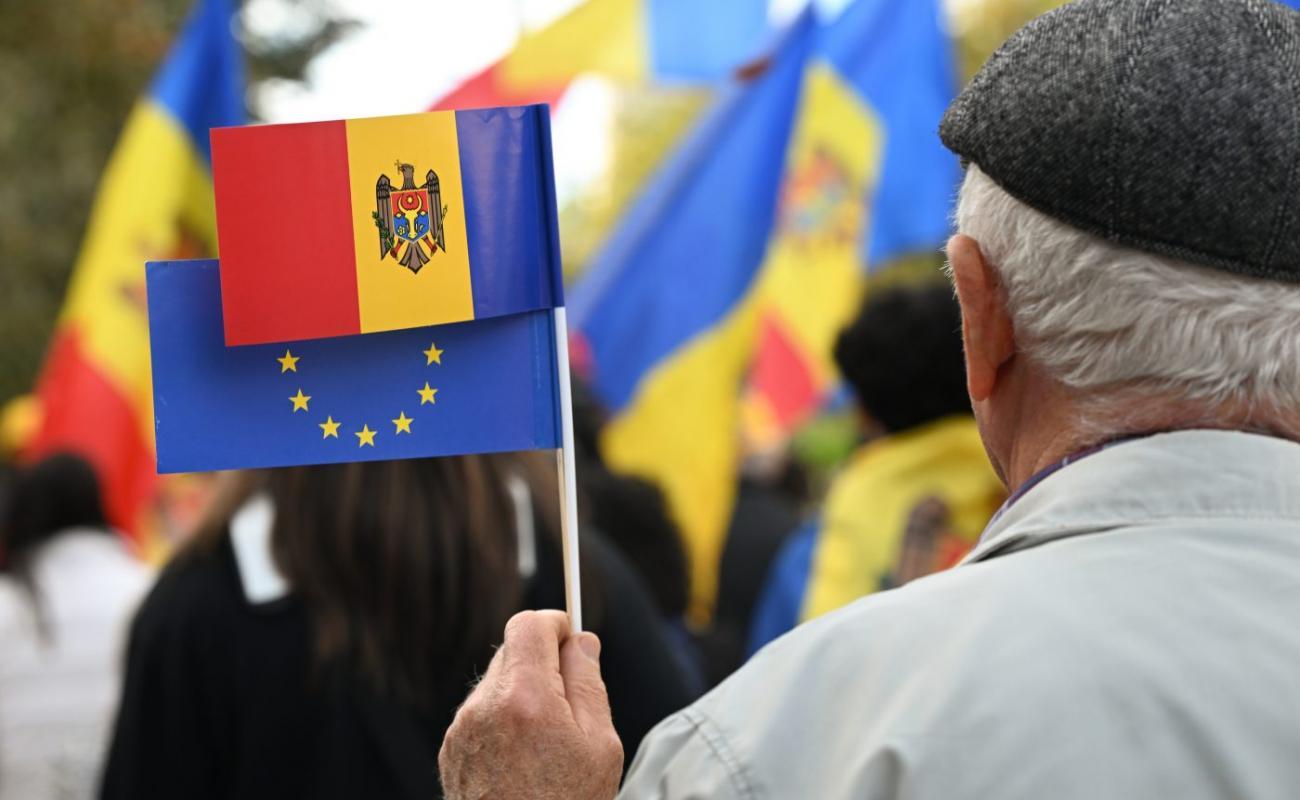Moldovans Reject Russia

In any age, it’s hard for a European party to maintain a parliamentary majority without vote rigging (see Russia and Belarus) and vast expenditure on electoral sweeteners. Most don’t go that far.
In early 21st-century southeastern Europe, it’s something of a miracle to hold onto power, especially when a wealthy foreign state and its spies are bankrolling the opposition. Step forward, President Maia Sandu and her PAS party, who achieved exactly this unexpected result in the September 28 parliamentary election.
The vote highlighted both the country’s fragility and its resilience. Voters delivered an unanticipated outcome by returning PAS won with 50.2% of the vote and 55 of the 101 parliamentary seats, a loss of eight. Kremlin-backed proxies and their allies together gained around 43%, enough to illustrate both the divides within Moldovan society and the possible pitfalls of the future. Because if one thing’s clear following the ballot (other than the audible sighs of relief from Western Europe), it’s that Russia will never end its campaign to suck Moldova back into Eurasia.
For the Kremlin, Moldova is a strategic asset far out of proportion to its size and population of just 2.4 million. Geopolitically, it is a pressure point on Ukraine’s Odesa region and a buffer separating Russia from the European Union (EU). Politically, instability in Moldova sustains a grey zone on Europe’s border, preventing the EU from consolidating its eastern neighborhood.
The failure of Russia’s allies to dominate the vote also shows that Moldovan society is not wholly the captive of Kremlin narratives.
Russia’s 1,500 troops in the breakaway pro-Russian republic of Transnistria and the 20,000 tons of Soviet-era ammunition at Cobasna remain enduring vulnerabilities. Even if militarily isolated, the local garrison forces every Moldovan government to weigh its policies against the risk of escalation. Transnistria also ties down Ukrainian forces along its southwestern flank and provides Moscow with a platform for intelligence and influence operations.
Even so, the fact that the PAS won 30% of the vote in Transnistria is notable. Moscow has repeatedly thrown the region under the bus when it served Russian interests (as with the severing of gas supplies last winter). The EU helped keep Transnistrian homes heated, and it seems at least some local people took notice.
The elections underscored Moscow’s reliance on covert action. Moldovan authorities, backed by Western intelligence, exposed several Russian-linked networks during the campaign. Dozens of individuals trained abroad were detained on suspicion of preparing violent protests to coincide with the vote. These operations are run by Russian intelligence officers holding Moldovan or Romanian passports, often operating from Transnistria or northern Moldova. They demonstrate how Moscow integrates its limited military footprint with intelligence-led destabilization.
The overlap of crime, politics, and business remains central to Russia’s influence. Ilan Șor epitomizes this nexus. Convicted in Moldova and sentenced to a 15-year term for a $1bn bank theft, sanctioned by the US, EU, and the UK, Șor now resides in Moscow. From there, he launched the “Victory/Pobeda” bloc, an umbrella for successor parties such as Șansă, Renaștere, and FASM — all sanctioned by the EU for undermining democracy. Its politics are flaunted by its symbol, which includes a star with a hammer and sickle, and it is now the main opposition bloc with 24% support.
Șor’s companies, tied to Promsvyazbank, closely tied to Russian Ministry of Defense bank, he has funneled millions of dollars into Moldovan politics and experimented with ruble-denominated stablecoins and billions in crypto transactions to bypass sanctions. These mechanisms both bankroll political activity in Moldova, but also sustain Russian trade in restricted goods.
Other figures highlight the same pattern. Grigory Karamalak (“Bulgar”), sanctioned for the theft of state funds and other illegal activities, a notorious crime boss and now vice-president of Russia’s wrestling federation, deploys diaspora organizations and sports events as Kremlin influence vehicles. Former President Igor Dodon, despite corruption charges, continues to liaise with Russian political technologists. Exiled oligarch Vladimir Plahotniuc too, recently detained in Greece, maintains networks that intersect with Moscow’s structures. The elections revealed how these entrenched actors continue to shape Moldova’s political economy.
Moldova is moving out of Russia’s orbit. It has sharply reduced dependence on Russian gas since 2022, blunting one of Moscow’s most potent tools. And the exposure of Russian destabilization plots suggests improved resilience in Moldovan institutions, supported by Western assistance. The EU is sending its largest-ever aid and loan package totaling at least $2.2bn, and while it will take time, the help will ultimately have an effect. These positives matter: they show that Russia’s toolkit is not irresistible, and that Moldovan society retains a significant pro-European core.
The challenge now is to build on the success of the pro-European movement and to help Chişinău resist Moscow’s hybrid arsenal. In Europe’s current confrontation with Russia, Moldova’s trajectory is a bellwether; PAS’s success gives good reason for optimism.
